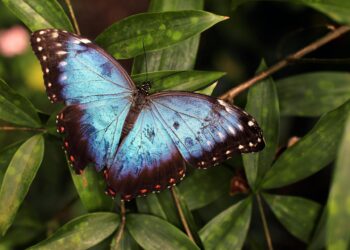The coronavirus pandemic has led to widespread changes in human behavior and reductions in the levels of pollution. Lockdowns have even caused many to rethink their consumer needs. But this shouldn’t necessarily be temporary, making it an opportune time to promote sustainable choices.

A group of environmental researchers has called for the conservation of nature to be at the center of the economic recovery from the pandemic. In an open letter published in Science, they asked governments to start making plants that that “safeguard biodiversity and human health” as they rebuild.
“How we emerge from the state of lockdowns will drive a new world economy with lasting effects on global biodiversity and supply chains,” the researchers wrote, claiming the path chosen will have lasting effects on global biodiversity. The right plans could “tip the balance” in favor of nature.
Past events such as pandemics, wars, and financial crises have also triggered quantifiable environmental changes. We can learn from such historical developments to guide effective conservation strategy, the authors argued. Governments and organizations should adopt clear strategies to safeguard both biodiversity and human health, they added.
There are some examples of upheavals that have had unintended benefits for nature, they claimed. The nuclear accident at Chernobyl in Ukraine, and the resulting exclusion zone around the plant, created an unplanned wilderness that has since been designated an ecological reserve.
The armed conflict in Colombia between the national government and guerrilla groups, for example, created unofficial protected areas. “This slowed environmental degradation because people were fearful of entering remote areas occupied by rebels,” Dr. Ryan Pearson from Griffith University in Queensland, Australia, told the BBC.
The researchers argued that economies can be boosted while protecting humans and nature by redesigning trade networks and supply chains to localize and better support sustainable consumer options. Environmental protection can also be strengthened, improving environmental monitoring.
Environmental policy has already moved in both directions, they claimed. Although in some places, environmental protections have weakened, in others, governments have banned animal trade and aim to localize supply chains to increase resource security. Recovery strategies can be optimized to benefit biodiversity conservation and protect human health, they added.
“We hope our letter will encourage positive strategies to support biodiversity into legislation, and the behaviour of people in their choices – in their consumption, investment, and travel,” Dr Pearson told the BBC.
This year was also supposed to deliver new global targets for protecting biodiversity. But the coronavirus epidemic postponed without a specific date the meeting in which the targets were supposed to be agreed amid the Convention of Biological Diversity (CDB).






